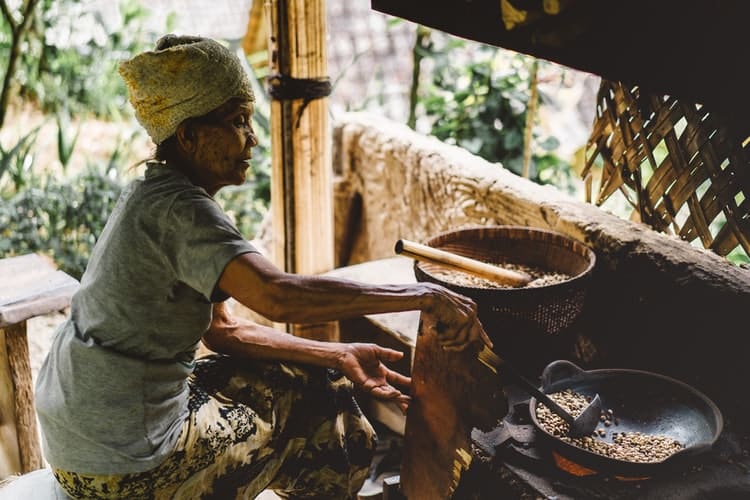According to Population Census, there are nearly 106 million elderly persons (aged 60 years or above) in India, 53 million females and 51 million males. As per the report of 71st Round in National Sample Survey Organisation (NSSO), 8.4% of elderly in the rural areas and 7% elderly in urban areas are physically immobile. 34% of elderly in the rural areas and 27% of elderly in urban areas are confined to their homes owing mostly due to mobility& health issues due to increased dependency rate especially as the proportion of “old-old” (above 80 years) increases in the country.
Old age is also characterized by the emergence of several complex health states that tend to occur only later in life and that do not fall into discrete disease categories. These are commonly called GERIATRIC SYNDROMES and a consequence of multiple underlying factors and include frailty, urinary incontinence, falls, delirium, and pressure ulcers. Common conditions in older age include hearing loss, cataracts and refractive errors, back and neck pain and osteoarthritis, asthma, chronic obstructive pulmonary disease (COPD), bronchiectasis, post tuberculosis sequelae, interstitial lung disease, chronic heart disease, chronic kidney disease, chronic liver disease, viral hepatitis, chronic neurologic conditions such as Parkinson’s disease, stroke, diabetes, hypertension, cancer.
Elderly appetite is defined as the feeling or sensation of discomfort or weakness caused by lack of food. For a variety of reasons, older adults lose their appetite and may not feel hungry, even though their bodies need food. The cause of malnutrition in elderly is limited income, trouble swallowing, chewing, or poor dental health, poor appetite, living alone or feelings of loneliness, weight loss, restricted diets (e.g., low sodium or low fat), and lack of mobility, depression, dementia, gastrointestinal disorders, and pricy medications that impact money spent on food. Elderly people (> 60 yrs age) are at higher risk of COVID-19 infection due to their decreased immunity, body reserves, and multiple associated co-morbidities like diabetes, hypertension, chronic kidney disease and chronic obstructive pulmonary disease and also particularly at risk for social isolation, loneliness, lack of access to food and medications at this time.
For Healthy Ageing including whole cereals and millets (such as Wheat, Rice, Ragi, Kodri, Bajra, Jowar, etc.), pulses (Red gram, Black Gram, Green Gram, Bengal Gram, Lentil, Soybean, Sprouted Pulses, etc.), nuts( Walnut, Almonds, Pista, Pumpkin seeds, Peanuts, etc) and oilseeds ( Sesame, Flaxseed, Mustard, Rapeseed, etc), egg white, pork, lean beef, veal, fish ( Tuna, Salmon, Halibut), turkey breast and chicken breast (if Non-vegetarian), Low-fat milk and milk products (curd, paneer, buttermilk, etc.), seasonal fruits and vegetables (dark green leafy, yellow and orange coloured vegetables, citrus fruits and other soft fruits) are helpful. Small portion sizes should be consumed frequently throughout the day and the plate should be made colourful with natural healthy choice of fruits, vegetables, herbs, which are easy to prepare and digest.
Seasonal vegetable containing pulao, upma, vermicelli, poha, khichdi, idli, cheela, uttapam appam, ragi, brokenwheat, semolina, amaranth, foxnutporridge, dhokla,khandavi,methi or bottlegourdmuthia, dal dhoklietccanbe opted. Avoid snacks that are highin salt, fat, or sugars. Use ‘+F’ logo foods as they are fortified with either one or more of the nutrients such as folic acid, vitamin A, vitamin D, vitamin B12, and iron. These foods are wheat flour and rice (fortified with iron, vitamin B12, and folic acid), milk and edible oil (fortified with vitamin A and vitamin D), and double fortified salt (fortified with iodine and iron). Include immune-boosting foods known as superfoods like Broccoli, mushrooms, kale, beans, flax seeds, walnuts, amla, spirulina and curcumin, blueberries, blackberries, strawberries, raspberries, plums, oranges, red grapes and cherries, extra virgin olive oil, cold-pressed virgin coconut oil, vitamin C rich fruits like sweet lime, pineapple oranges, kiwi, and guava and vegetables like eggplant, bell peppers, beetroots, spinach, and cauliflower, soaked almonds, sunflower seeds, and hazelnuts as source of vitamin E and herbs like fenugreek seeds (Methi), carom seeds (Ajwain), aniseed (Saunf), asafoetida (Hing), clove (Laung), garlic, ginger, onion, turmeric (Haldi), cumin (Jeera), cardamom (Elaichi), black pepper (Kali Mirch) should be consumed. To remain hydrated, drinking 8-9 glasses of water daily along with kokum-fennel-gulkand water, coconut water, lemon water, barley water, milk (low fat), green tea and homemade fruit juice is beneficial. Use of edible vegetable oils (mustard oil, sunflower oil, soybean, safflower oil, rice bran oil, etc.) for cooking not more than 20 grams (4 teaspoons) per day. Saturated fats like ghee, butter, palmolein, and coconut oil should be minimized.
Elderly with dentures or chewing difficulties should eat soft cooked foods like dalia/upma/poha/rice/khichdi, mixed flour dosa or cheela /roti with dried moringa/bael leaves powder incorporated etc. dals, paneer, curd, eggs, soft fruits like banana, papaya, mango, sapota, cooked apples and soft cooked pureed vegetables and soups (bottle gourd, tomato, drumstick, carrot, etc). Dry meals should be avoided as swallowing food becomes difficult. Along with this daily dose of sunlight for at least 30-40 minutes between 11:00 am to 1:00 pm, regular physical activity for at least 30 minutes a day at home, and daily 7- 8 hours daily sleep is required for better immunity and mental health.
Stress and anxiety in elders can be reduced by keeping them engaged in daily activities like cleaning, cooking, gardening, meditation, religious activities, learning and cooking traditional recipes and other activities that they enjoy like painting, listening to music, reading, playing indoor games, craft along with reducing the frequency of watching, reading and listening news that induce anxiety. Also, allow them to participate in family conversation rather than keeping them isolated. This will allow them to share any uncomfortable experiences they may face for their physical and mental health.
Elder abuse is self-neglect. The lockdown restricted movements and has put elders in a more vulnerable position as the mode of physical communication and spending quality chat with friends in morning and evening has put them in miserable conditions. There independency to go and do their work has also been affected thus making them more dependent on family members / neighbours/ care takers. Such situation has brought them into a condition of psychological/ physical/ financial/ negligence/ sexual abuse. Use of abusive language can make elderly more depressed and may deteriorate their physical health as they will stop eating as well as mental health by creating environment of fear for them. The best way to overcome is to speak with friends or helpline counselors so that they may feel confident to confide in or share their problems. It is important not to hide their pain or injustice, but help them to live with dignity.
The research studies conducted in area of Geriatric Nutrition by the Department of Foods and Nutrition, The Maharaja Sayajirao University of Baroda, clearly highlights that Nutrition Health Education (NHE) based on physical activity, dietary patterns, importance of vitamin B12 supplements as an intervention have beneficial effects in reducing cognitive impairment and gain in knowledge related aspects leading to improvement in mental health of elderly.Various easy to cook, digest and accepted products like energy dense gruel, flaxseed ladoo, ragi and soybean incorporated recipes have been developed and intervene in elderly that showed significant rise in their nutrient intake and anthropometric measurements. Another study showed that mean haemoglobin level was higher in daily iron folic acid supplementation instead of biweekly. Increase in haemoglobin level lead to higher consumption of meal to meet RDA which showed positive impact on physical performance and cognitive performance of the subjects by decrease in episodes of minor health problems. Iron folic acid supplementation seems to reduce the prevalence of anaemia, minor illness supporting a good quality of life.Another study showed that being on a prescribed regime of 1000 mcg vitamin B12 injectable dosage for six months has efficiently resulted in significant memory improvement of the MCI patients along with efficacious flaxseed supplementation for significantly lowering theatherogenic indices and increasing the HDL levels in the cognitively impaired geriatric patients. Study on bone health of the geriatric population showed that the high dose of Ca and vitamin D3 coupled with mega dose of vitamin D3 is recommended if a quick treatment is required and if constrictions for exercise are there in elderly.
Whereas, a low dose coupled with weight bearing exercises is recommended for a long term therapy. However, in both the cases an initial mega dose of vitamin D is recommended. Moreover, a low dose for short tenure without weight bearing exercise is not as efficient as the high dose (short tenure) or low dose along with exercise (long tenure) to improve serum vitamin D level of elderly. Studies have clearly shown that there is a strong need to promote NHE amongst pre-geriatric and geriatric groups at a larger scale can act as preventive measure for occurrence of chronic problems defining the quality of life at a later age. Flaxseed supplementation showed positive impact in weight reduction and cognitive decline. Intervening higher amount of flaxseeds for longer period may show greater impact on the cardio-vascular health of elderly.
It is advised that during Covid19, the elders should stay at home all the time, avoid attending visitors, maintaining distance of 1 meter, ask help from neighbours for essentials if living alone, avoid small or large gatherings, remain active within the home, practicing yoga and light exercises at home, maintain hygiene by washing hands for 20 seconds especially before meals and after using washroom. Frequently clean objects of daily use such as spectacles, doorknobs, surfaces etc. Monitor health if they develop fever, cough,breathing difficulty or any other health issue, and contact the nearest health care facility and follow the medical advice.
Written by-

 Komal Chauhan and Neha Garg Professor, Temporary Assistant Professor Department of Foods and Nutrition, Faculty of Family and Community Sciences, The Maharaja Sayajirao University of Baroda, Vadodara, Gujarat
Komal Chauhan and Neha Garg Professor, Temporary Assistant Professor Department of Foods and Nutrition, Faculty of Family and Community Sciences, The Maharaja Sayajirao University of Baroda, Vadodara, Gujarat







